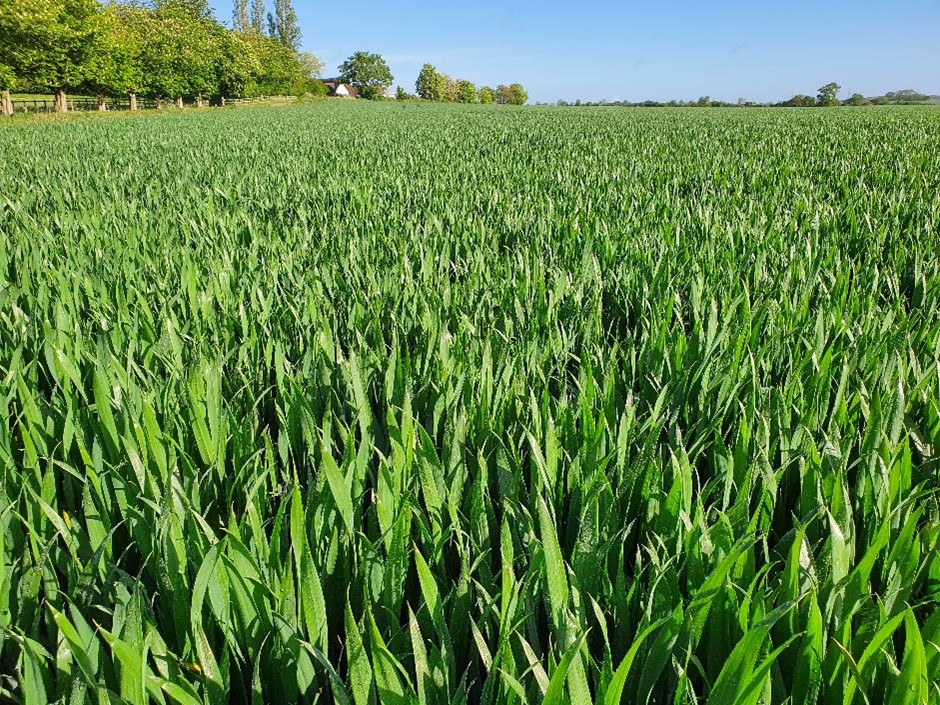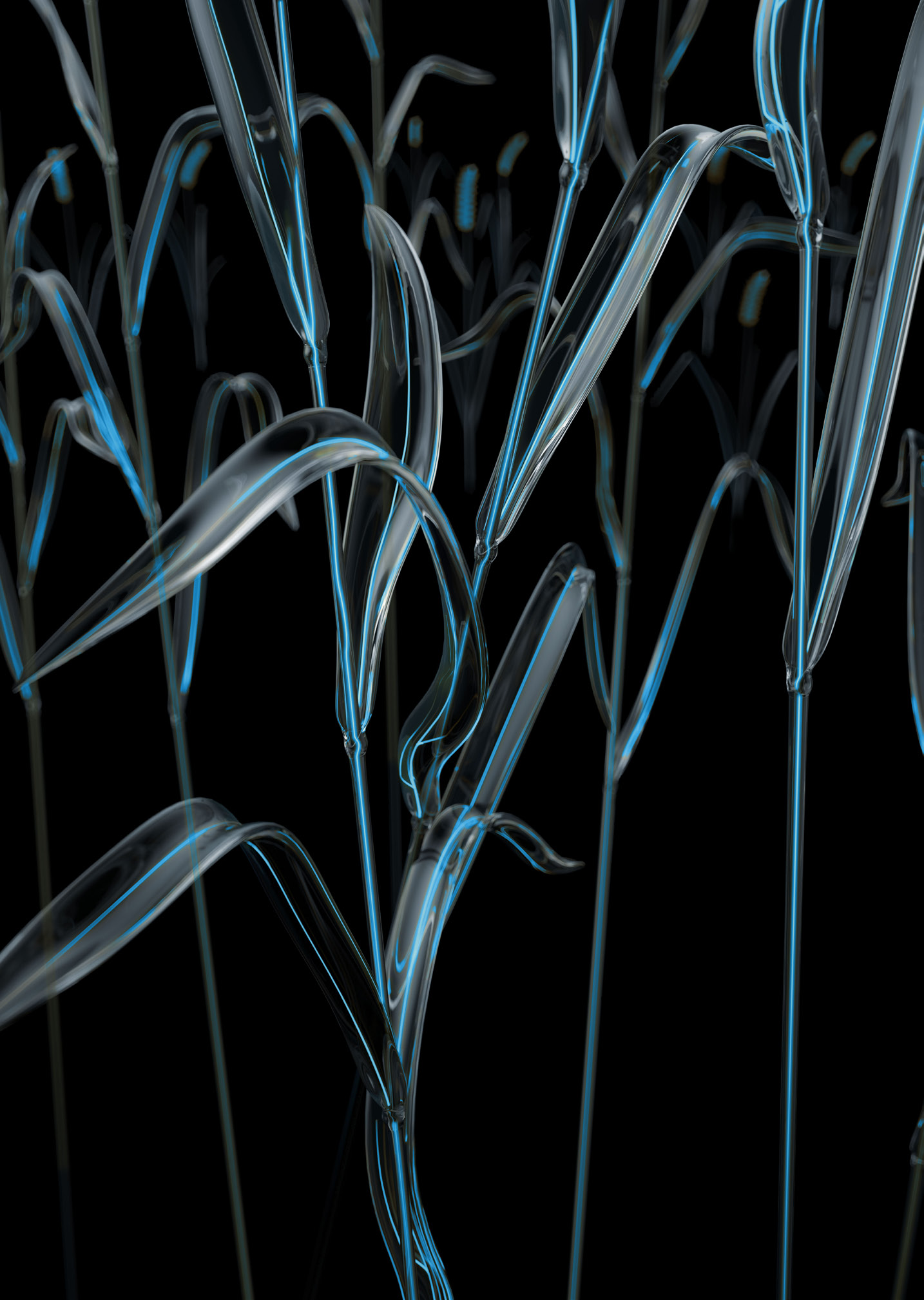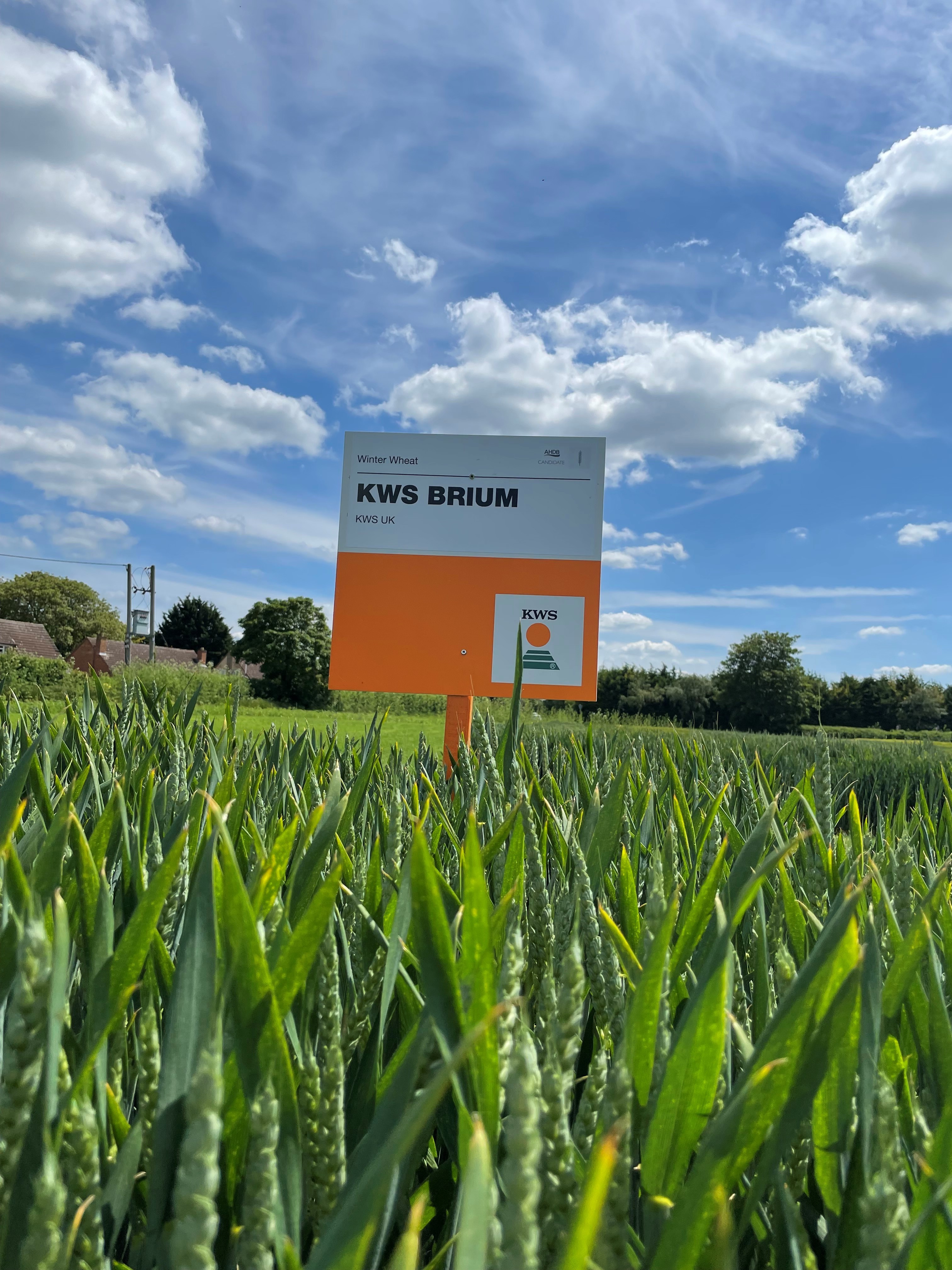Genetic resistance becoming a more important factor in varietal selection says Bedfordshire grower
Widely recognised for his attention to detail in crop production, Andrew achieved the distinction of being named Farmer of The Year in 2019, when he also grew the first commercial crop of KWS Extase.
He has continued to expand the area of this variety as part of a move towards growing those with higher levels of genetic resistance to reduce the farm’s dependence on agchems.
“Chlorothalonil had underpinned our fungicide programme for years and losing access to it was a key factor for my initial interest in KWS Extase.
“Its high yield potential and milling potential were also important, as we have several good outlets within a 40-mile radius,” says Andrew, who has been Farms Manager at Heathcote Farms Ltd, Toddington since 2004.
“KWS Extase is a good example of a variety with an inherently high level of disease resistance, which is becoming increasingly important because, amongst other things, it gives greater flexibility in terms of application timings.
“Given the variable weather over the last two seasons that is a significant benefit as farming by calendar is becoming more difficult and often it is not possible to spray at the optimum time.
“Our approach is to treat each variety individually, taking account of the weather and current situation in the field.
“We tend to front load fungicides and rein in later in the season, if conditions allow, but it is difficult to set out exactly what will happen during the season, so we always remain flexible.
“Having a high level of inherent disease resistance gives more flexibility in terms of spray timings, so really it is more a question of genetics complimenting chemistry and the two working in harmony, rather than one replacing another.
Greater management flexibility
Because KWS Extase is such a clean variety it has been possible to cut back a bit on agchems, but that is not the main goal, Andrew explains.
“I liked the look of the variety because of its strong overall disease package and the fact that it is early to mature, as it is good to have a range of maturity dates to spread the workload at harvest.
“In autumn 2018 we drilled 7.5ha of KWS Extase, which was the only commercial crop that year, and included it in a trial alongside 22 other milling wheat varieties.
“We had already decided to have a no-Chlorothalonil area as one of the regimes in the trials, but after the EU’s decision to ban this important fungicide that became much more important.
“In the split field trial, the area where no chlorothalonil was applied yielded 11.56t/ha and the low input area 11.65t/ha, against the farm standard five-year average of 12.31t/ha, everything measured to 14% moisture and weighbridge checked.
“KWS Extase did not disappoint, yielding 11.9 – 12.6t/ha and producing an excellent milling sample which was sold to Heygates.”
Difficult weather conditions last autumn dramatically affected the cropping which had been planned at Heathcote Farms this season, the balance between winter and spring sowings being way out of line with what would normally be the case.
The 1200ha include 400ha of winter wheat, 100ha of winter oats, 80ha of winter linseed, 70ha of winter barley and 40ha of winter beans, together with 200ha of spring beans, 75ha of spring wheat, 60ha of spring peas and 7ha of spring barley.
“We have a wide mixture of soils, mainly heavy clay but with areas of greensand, Denchworth Series and chalky loam,” Andrew explains.
“One of my key objectives has been to improve soil organic matter, so we have a straw-for-muck arrangement with another local farm.
“We’ve applied a lot of compost for many years which we made ourselves from 12,000 tonnes of local authority green waste that was taken in each year and turned into a valuable soil conditioner during a 12-week process.
“The combination of increasing soil organic matter, incorporating chopped straw and using tracked machinery, including our 12m Claas Lexion 770 combine, has significantly improved the soil structure and made the land much easier to work.
“In terms of crop establishment, we are quite traditional in our approach. The combination of heavy soils and hills make this land very horsepower-hungry, so we run two Case IH QuadTrac tractors, a 2014 Quadtrac 620 and a 2009 Quadtrac 525.
“We use a 6m Watkins Quad-till one pass cultivator behind the 620, running the subsoiler tines at 20cm to 25cm and the discs at 7.5cm to 10cm. After that we roll or use a Simba CultiPress ahead of the 8m Vaderstad Rapid drill.”
As a vigorous developer, Extase competes strongly with blackgrass, a significant benefit to many growers, Andrew adds.
“Last year we had no first wheat due to the weather, but this season have 40ha of KWS Extase, mainly on heavier soils.
“Had it not been for the challenging weather last autumn that area would have been much greater, probably 120ha. The crop was drilled during the third week of September at 350 seeds/m2.
“Extase is the most vigorous variety I have seen, especially in the spring, and produces a huge amount of biomass which helps to suppress weeds.
“But that rapid speed of growth also means that spray timings may be earlier than in other varieties and it is important to inspect it early in the spring.”
Heathcote Farms use variable-rate Nitrogen, but because of Extase’s high potential the base 250kgN/ha is generally supplement that with Chafer Nufol 20 (20%N) as a late foliar spray to increase grain protein, he explains.
“Having access to a variety such as KWS Extase undoubtedly provides a significant comfort factor because of its inherent genetic resistance. It has become a key variety for us and the crop which is in the ground now looks exceptional.”
KWS Extase undoubtedly provides a significant comfort factor because of its inherent genetic resistance
Extase explained
A breakthrough Group 2 variety, it took Septoria tritici resistance to a whole new level, being the first to score above 8.0 in the UK.
KWS Extase also provides an unrivalled untreated yield (93%), its performance being at least 21% ahead of controls in official National List and Recommended List trials from 2016 to 2018, three years in which rainfall and disease pressures were anything but average.
The withdrawal of the non-systemic broad-spectrum fungicide Chlorothalonil in autumn 2019 was a significant blow for the farming industry, as it had been an inexpensive backbone for the control of Septoria in wheat since the 1960s.
Consequently, many growers are now looking towards better varietal resistance as a key tool for controlling this yield-robbing disease.
Your consultants







